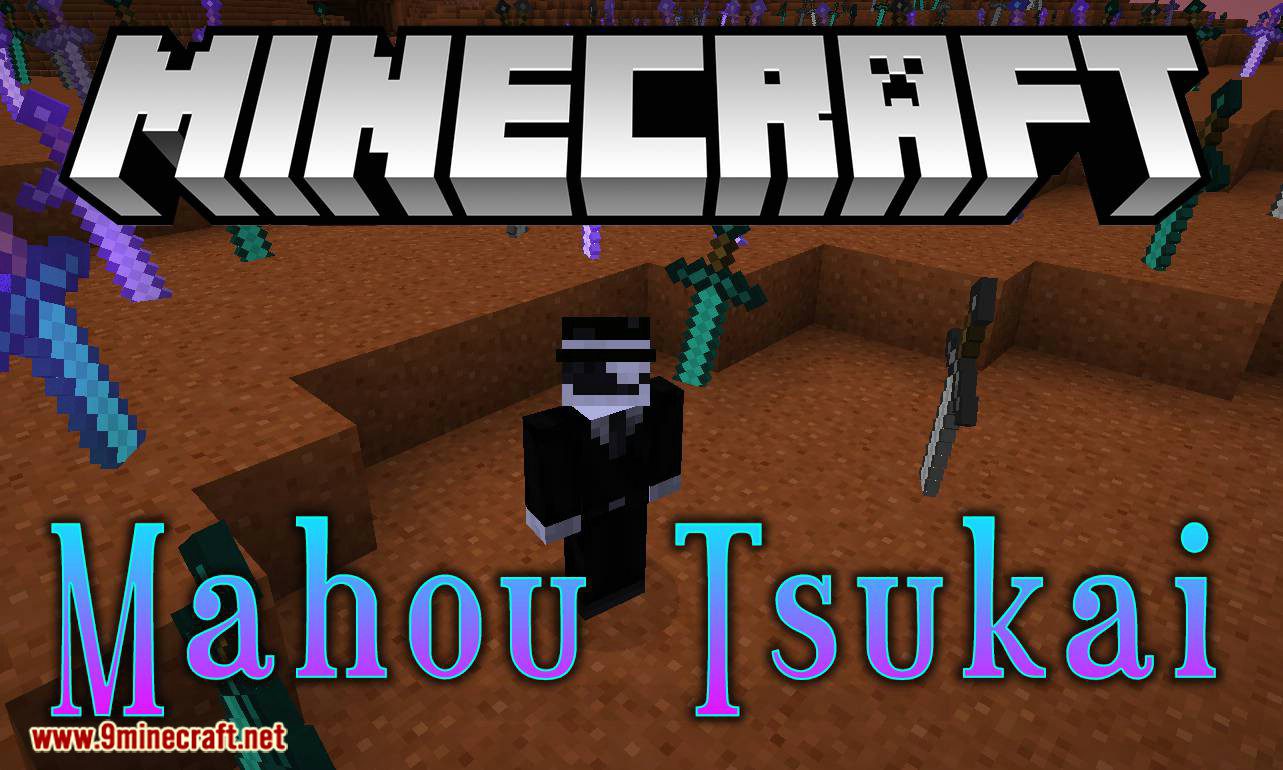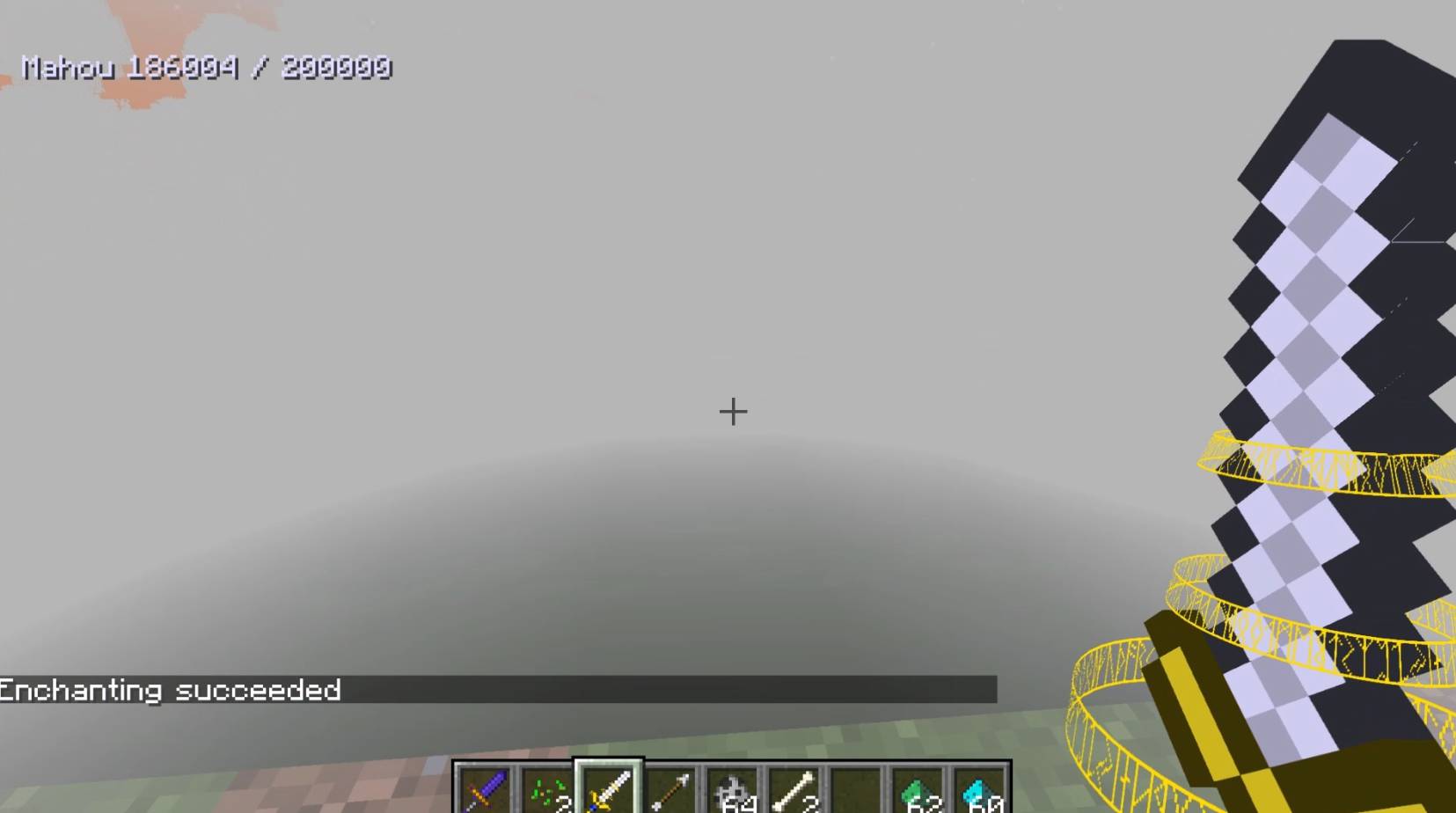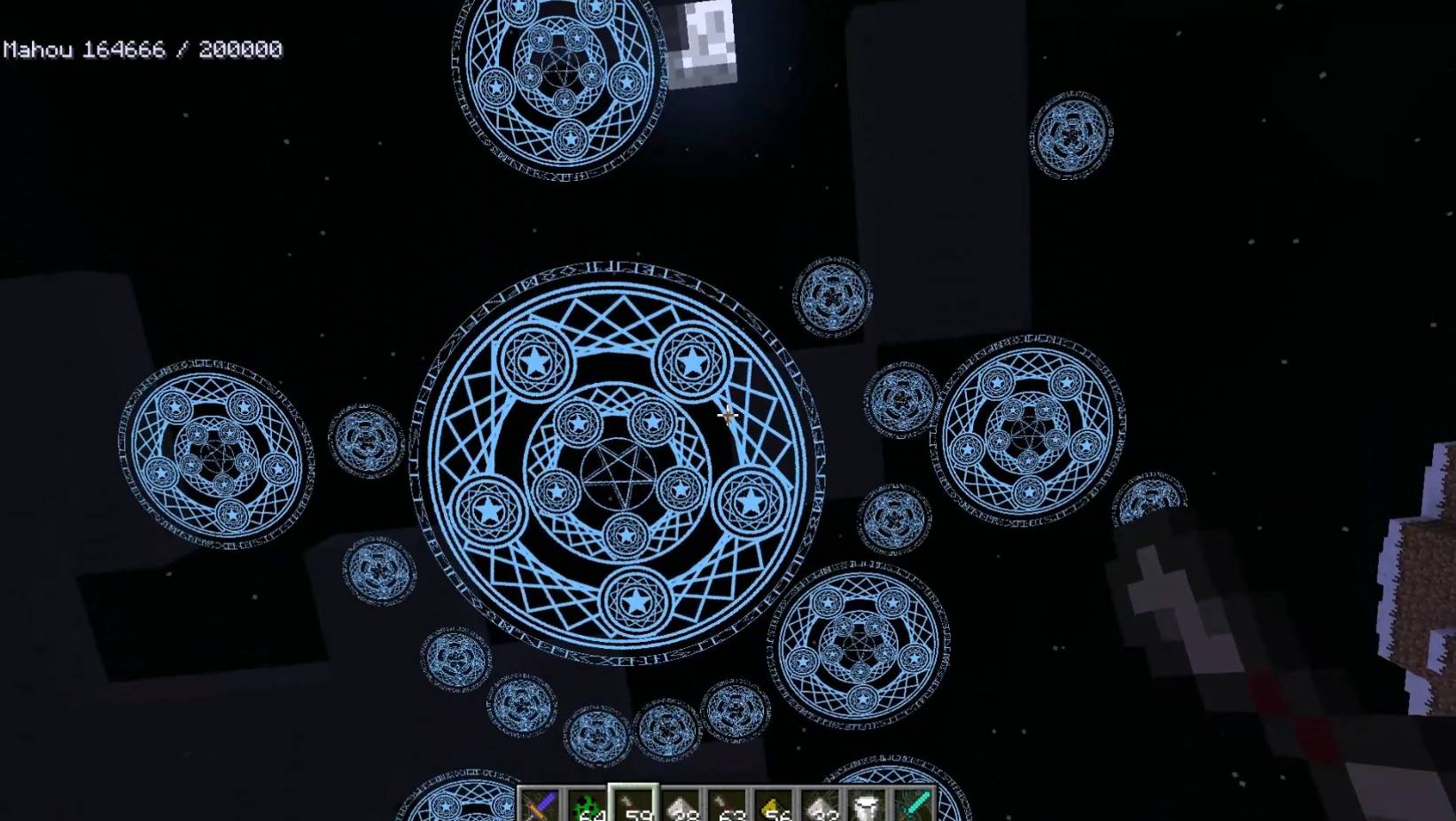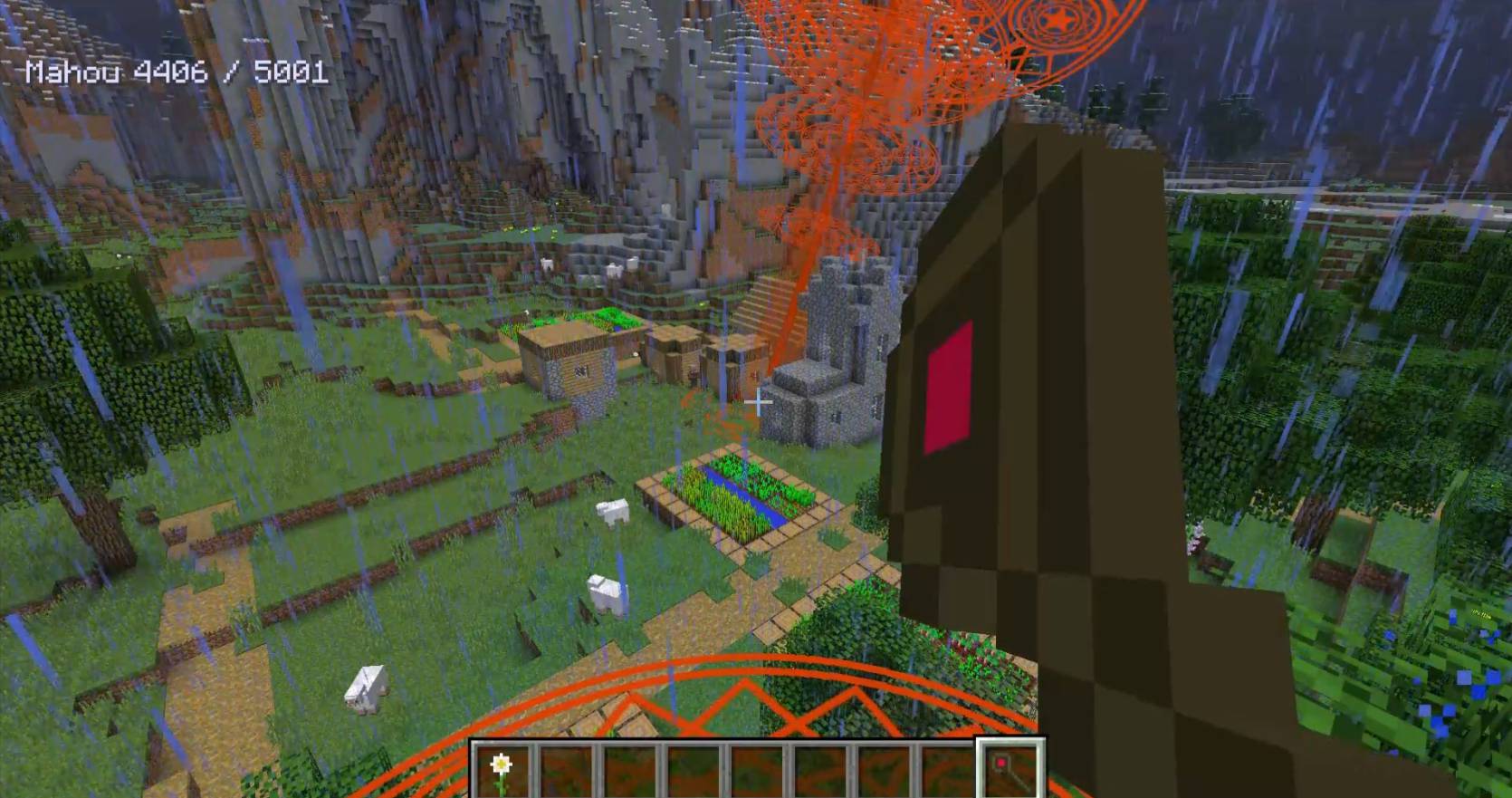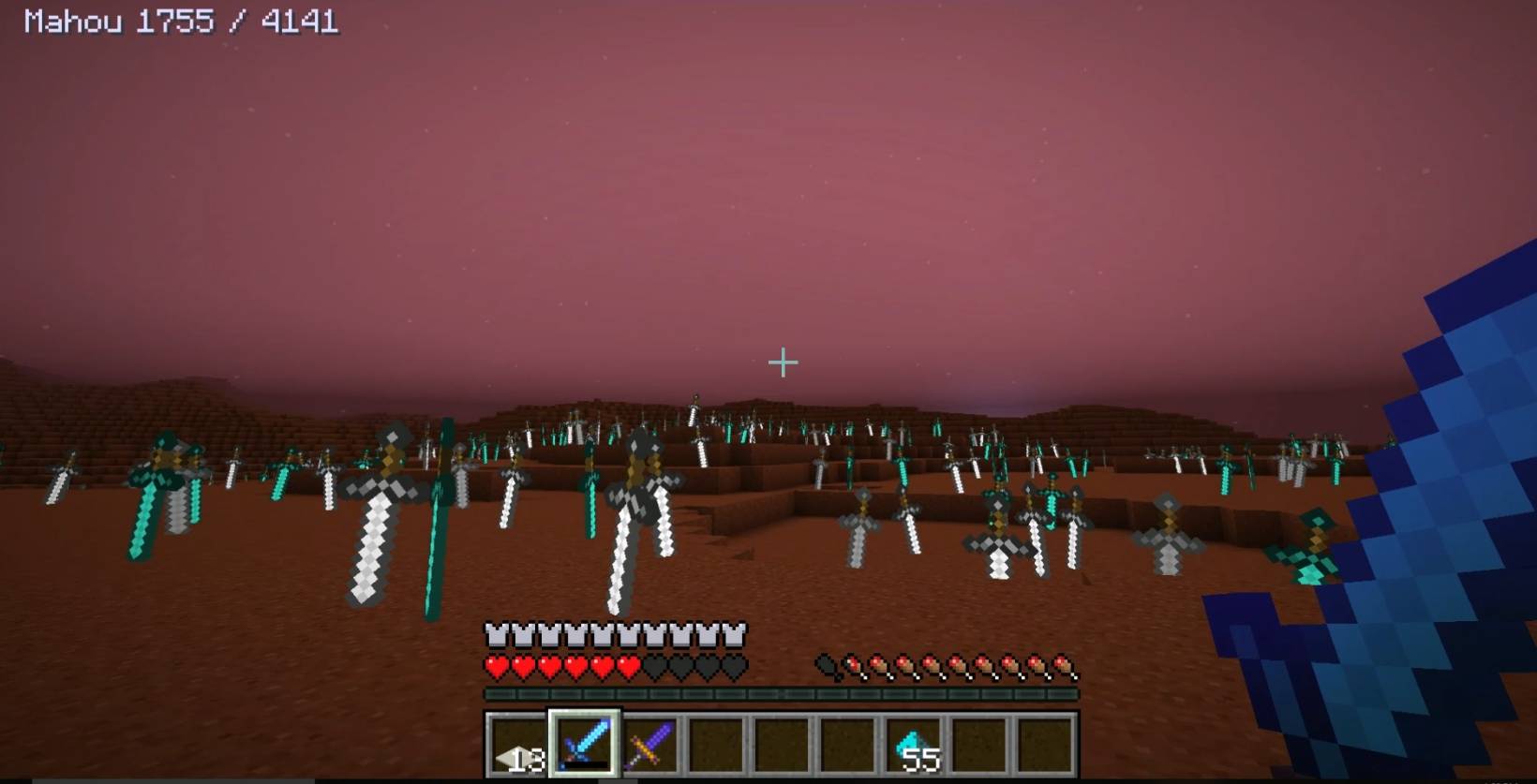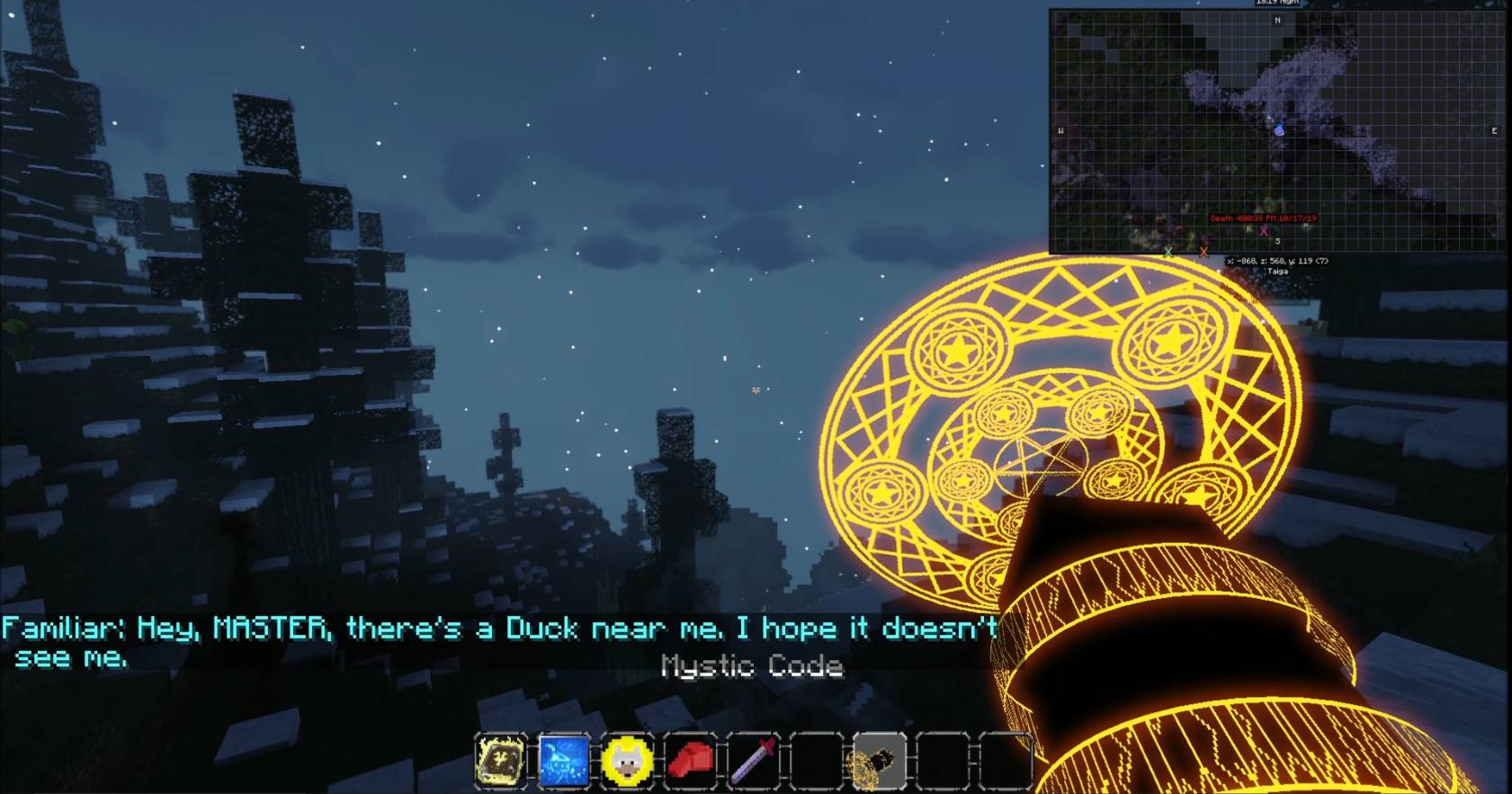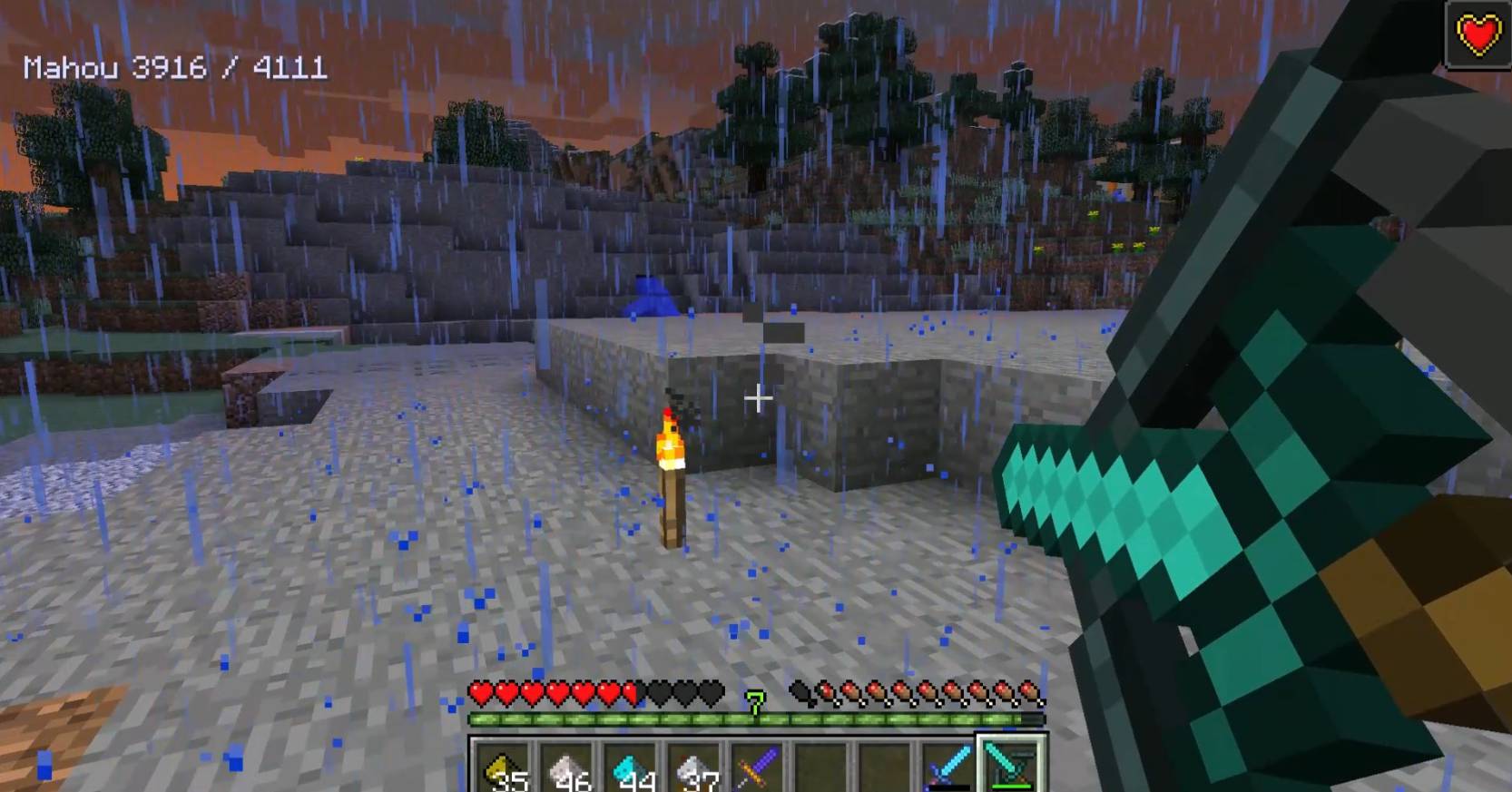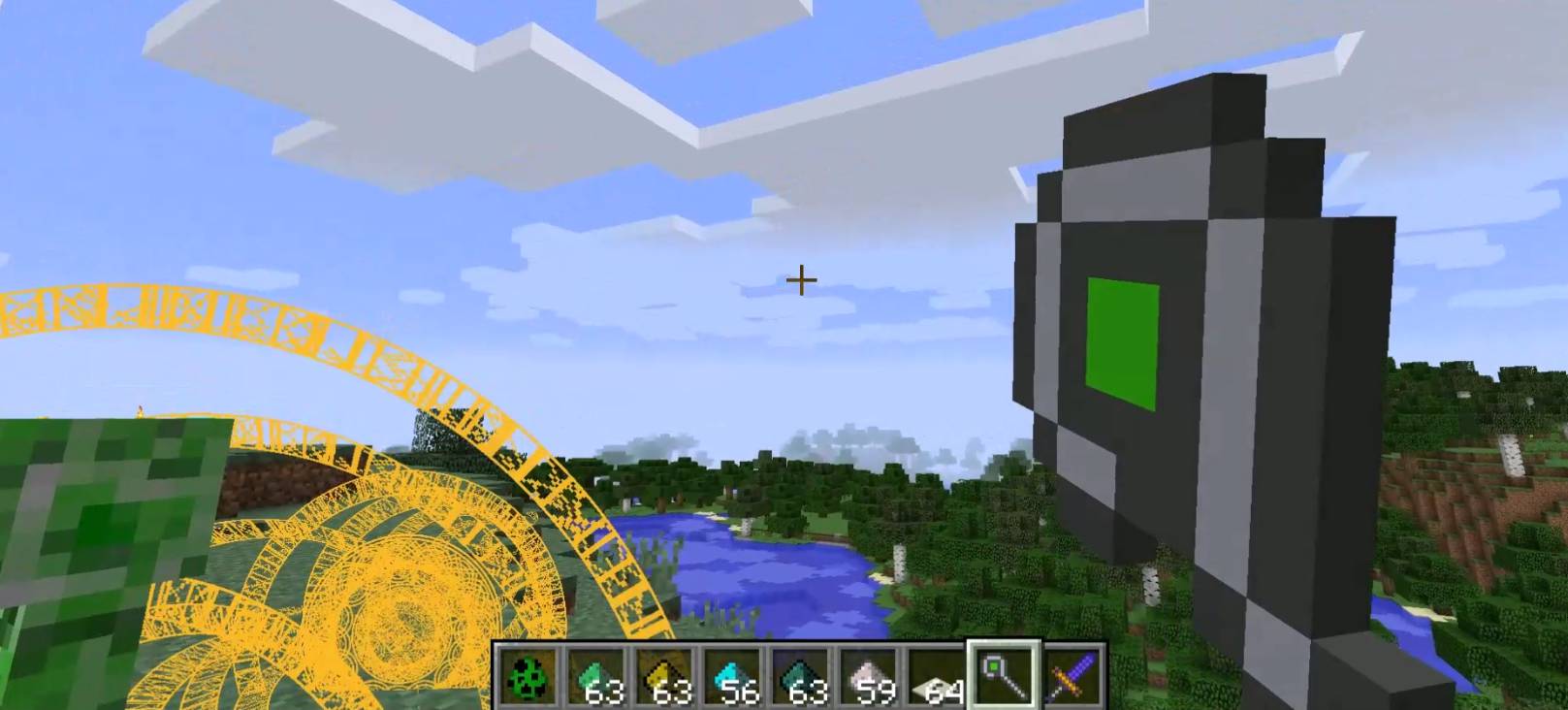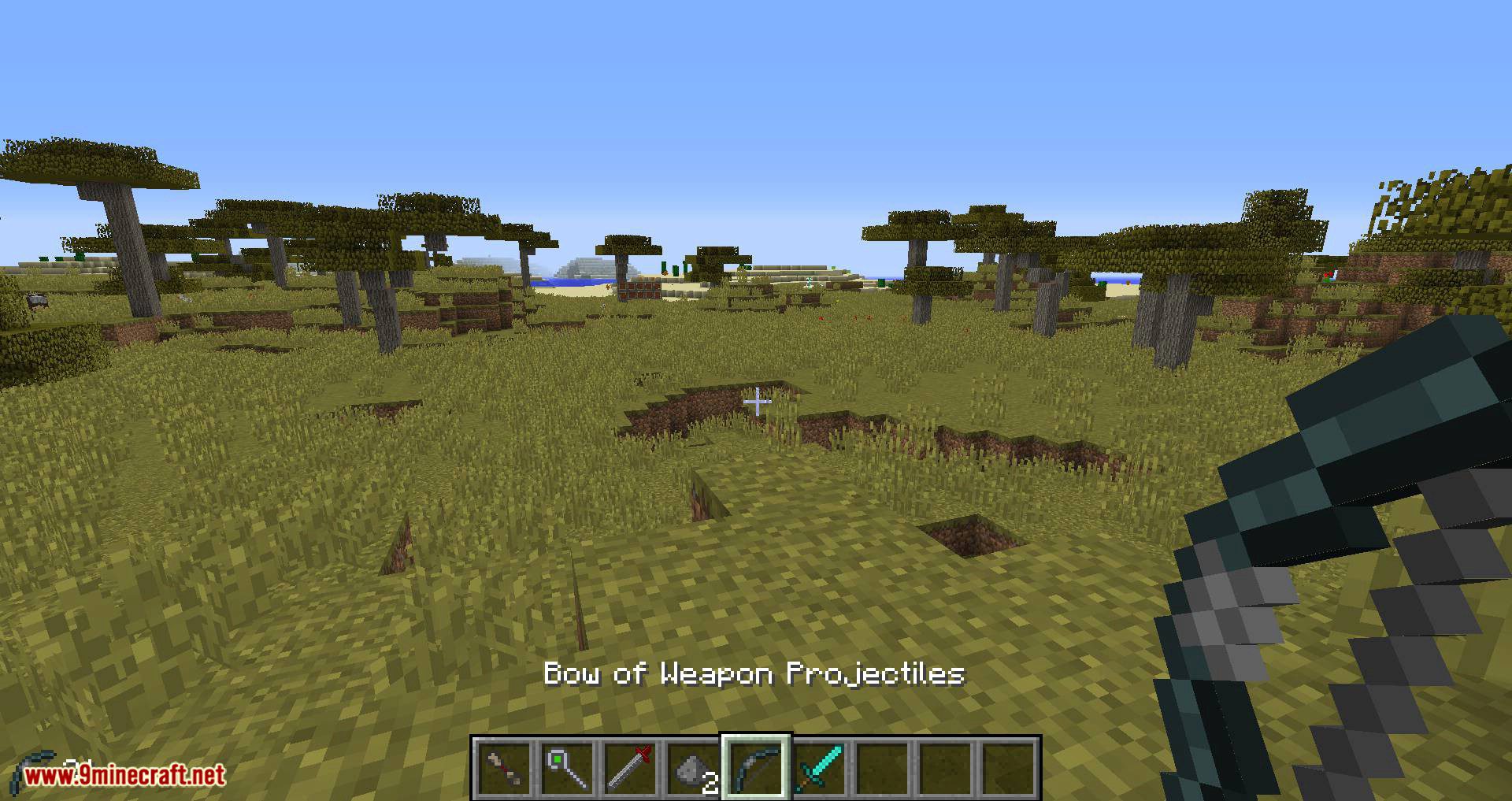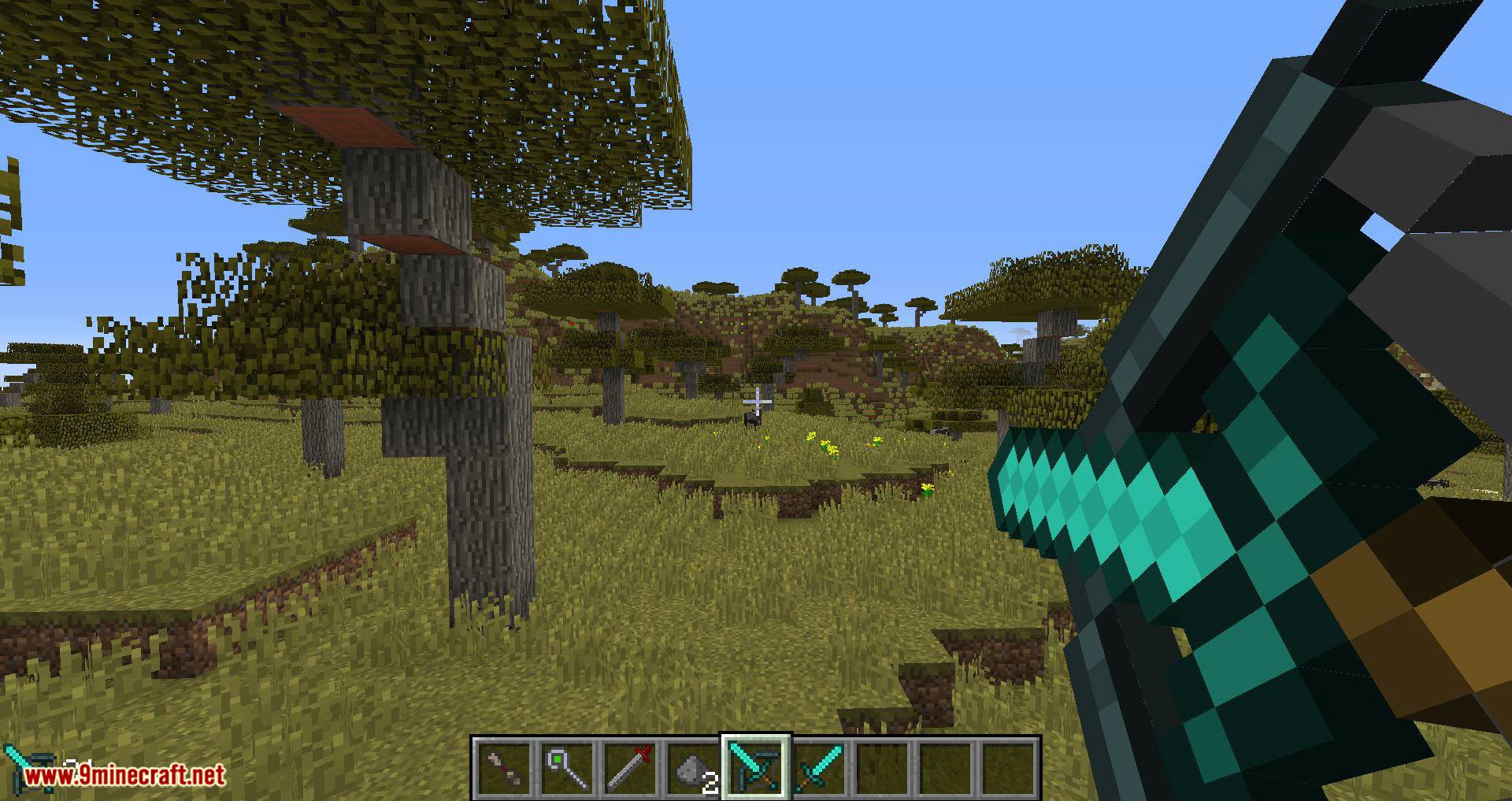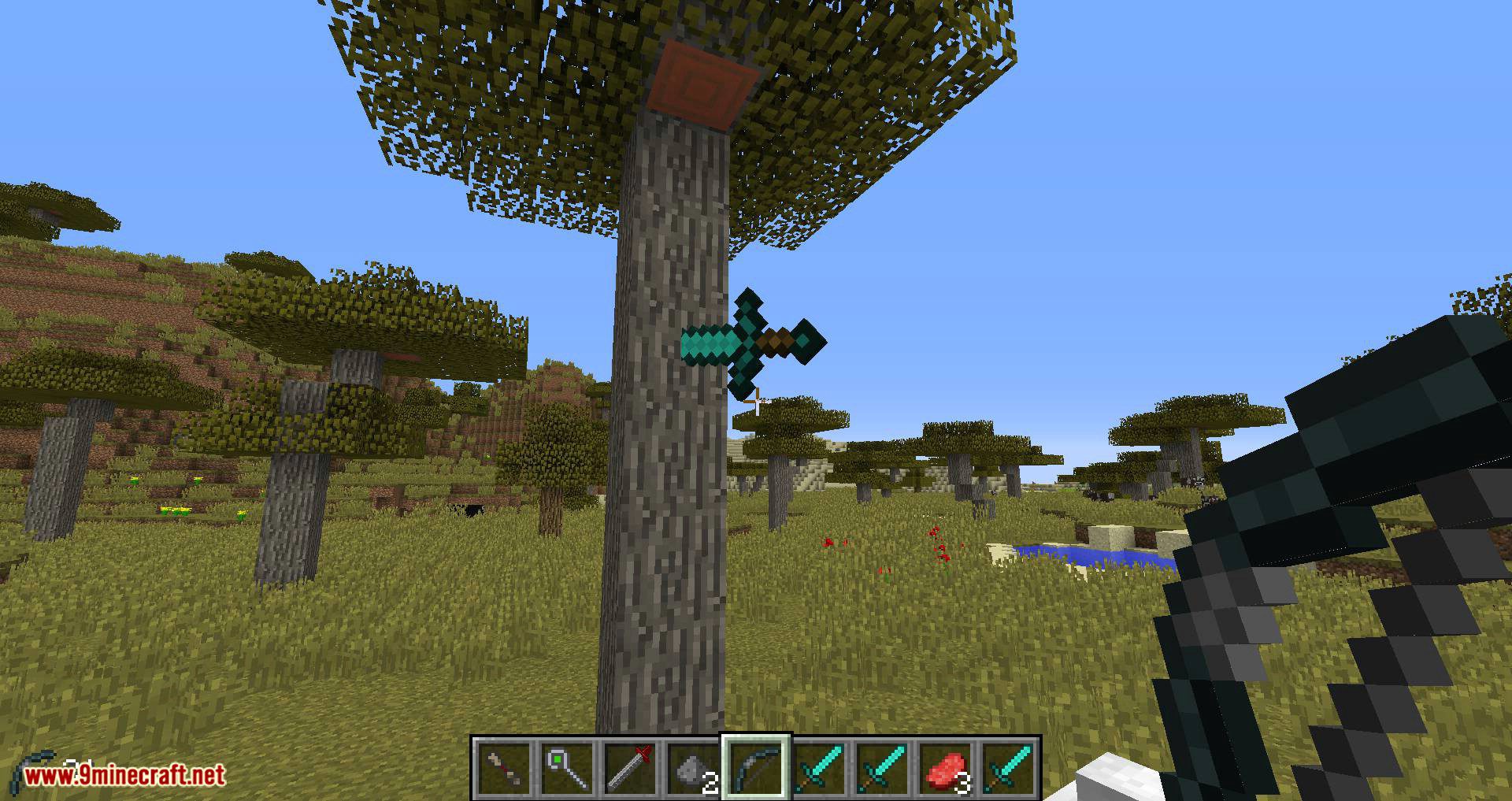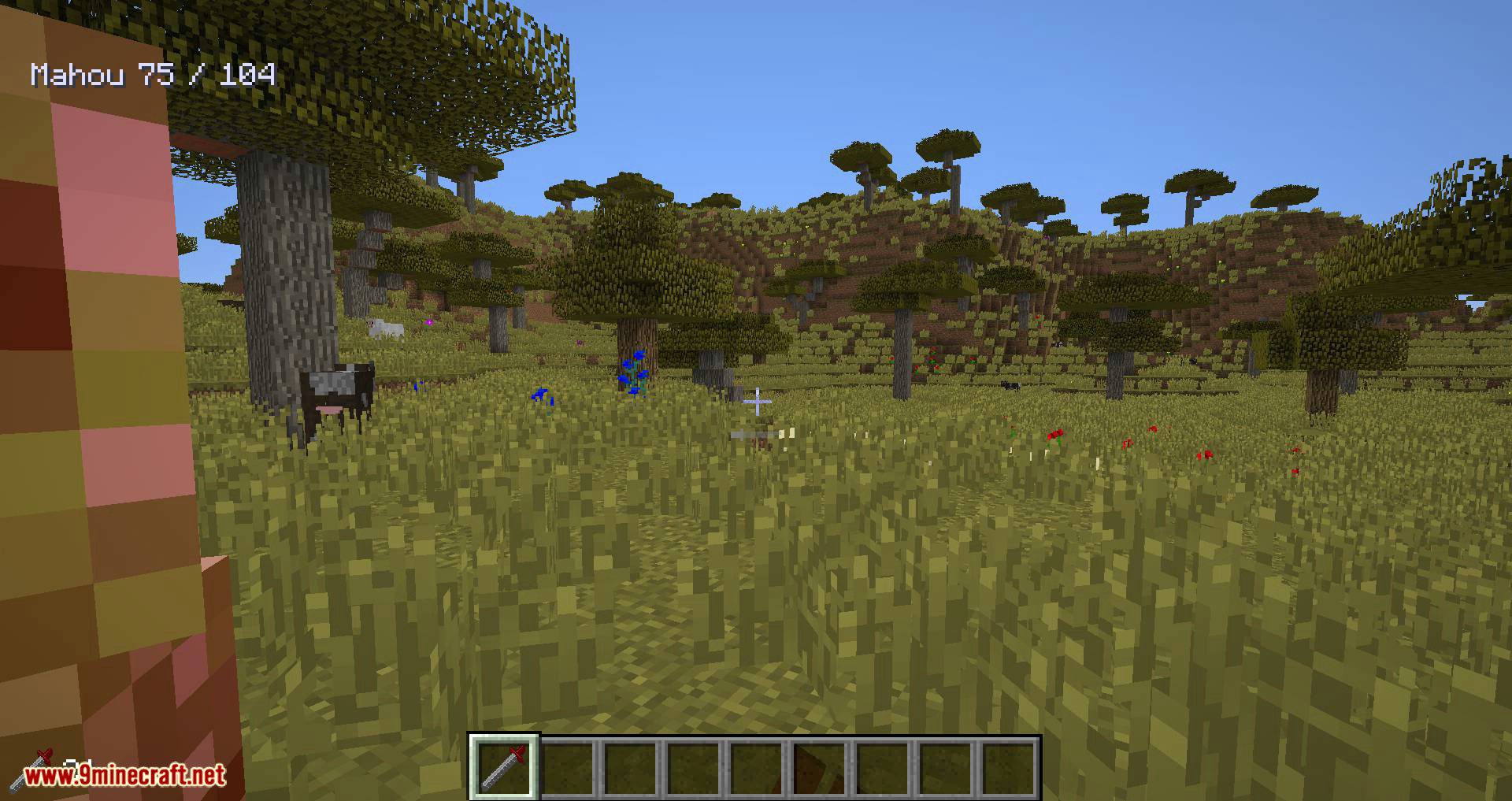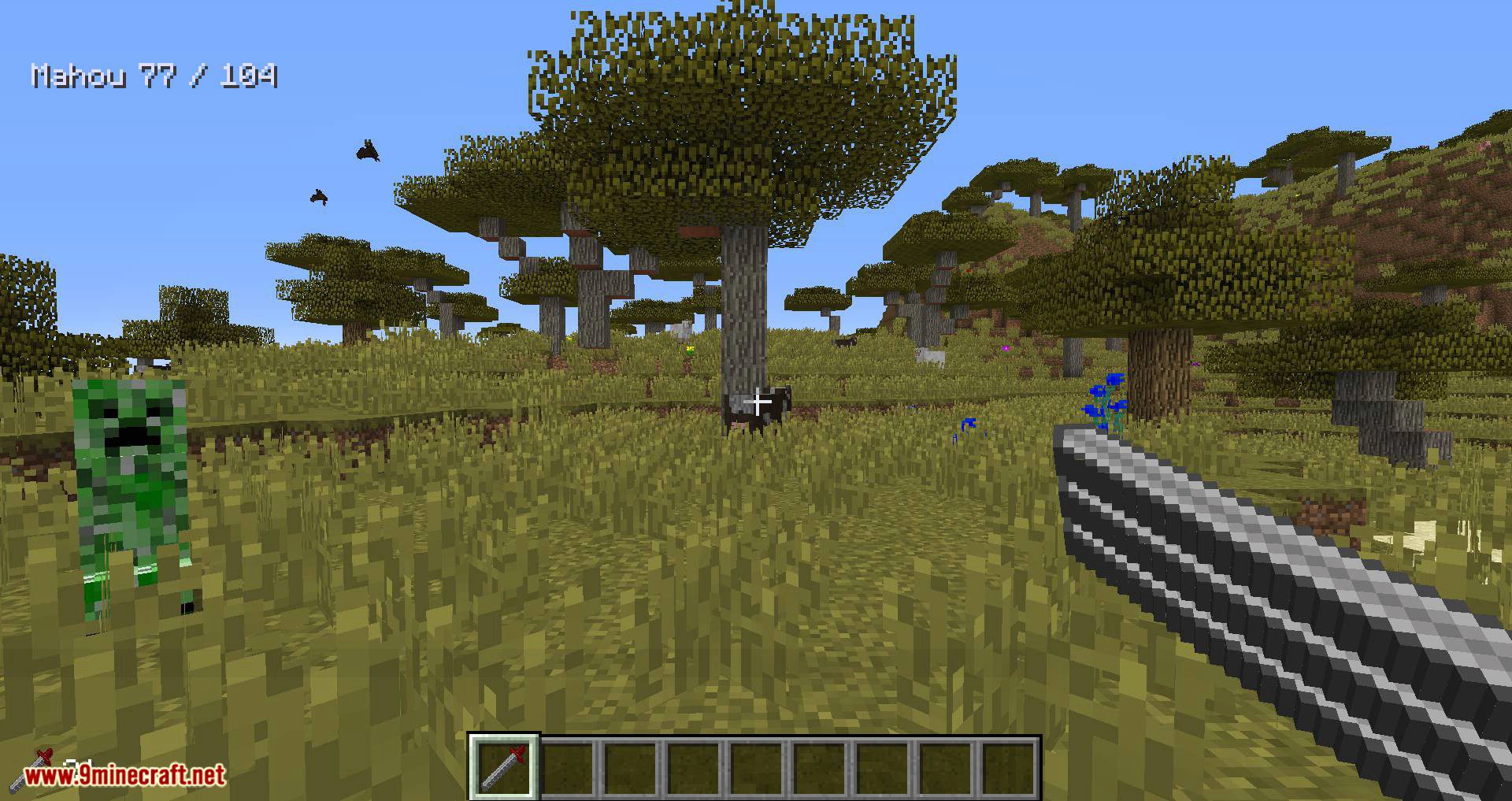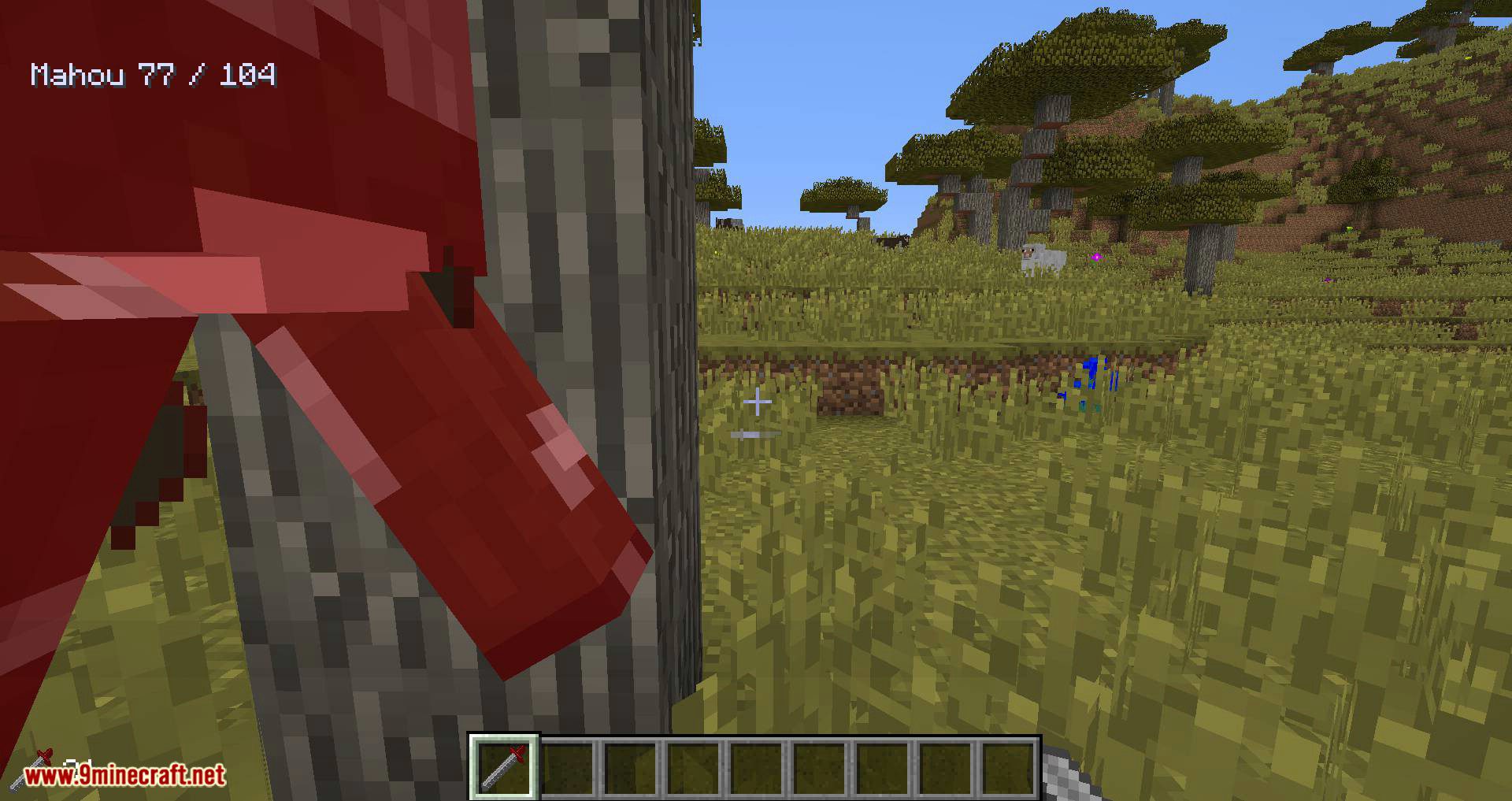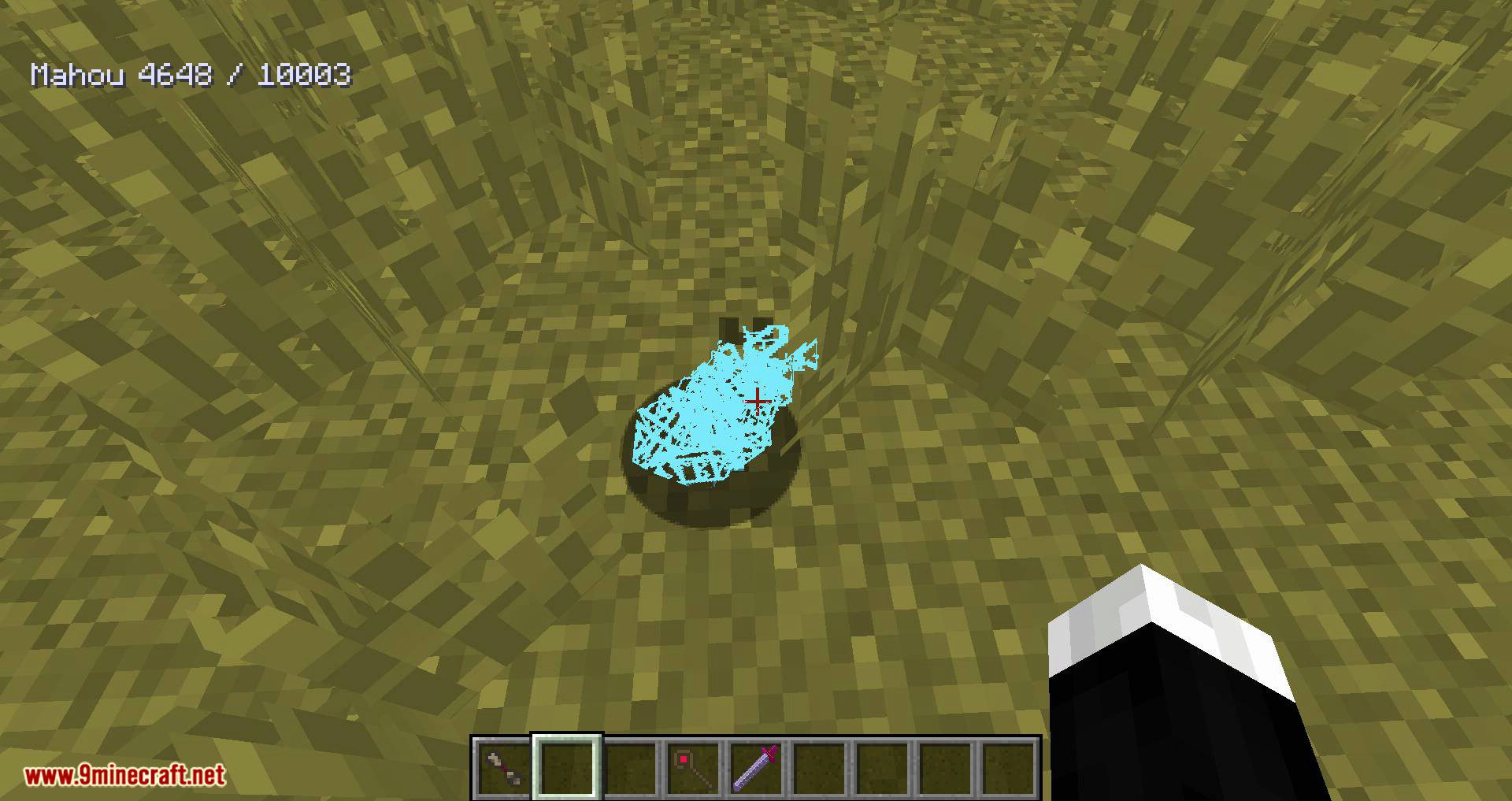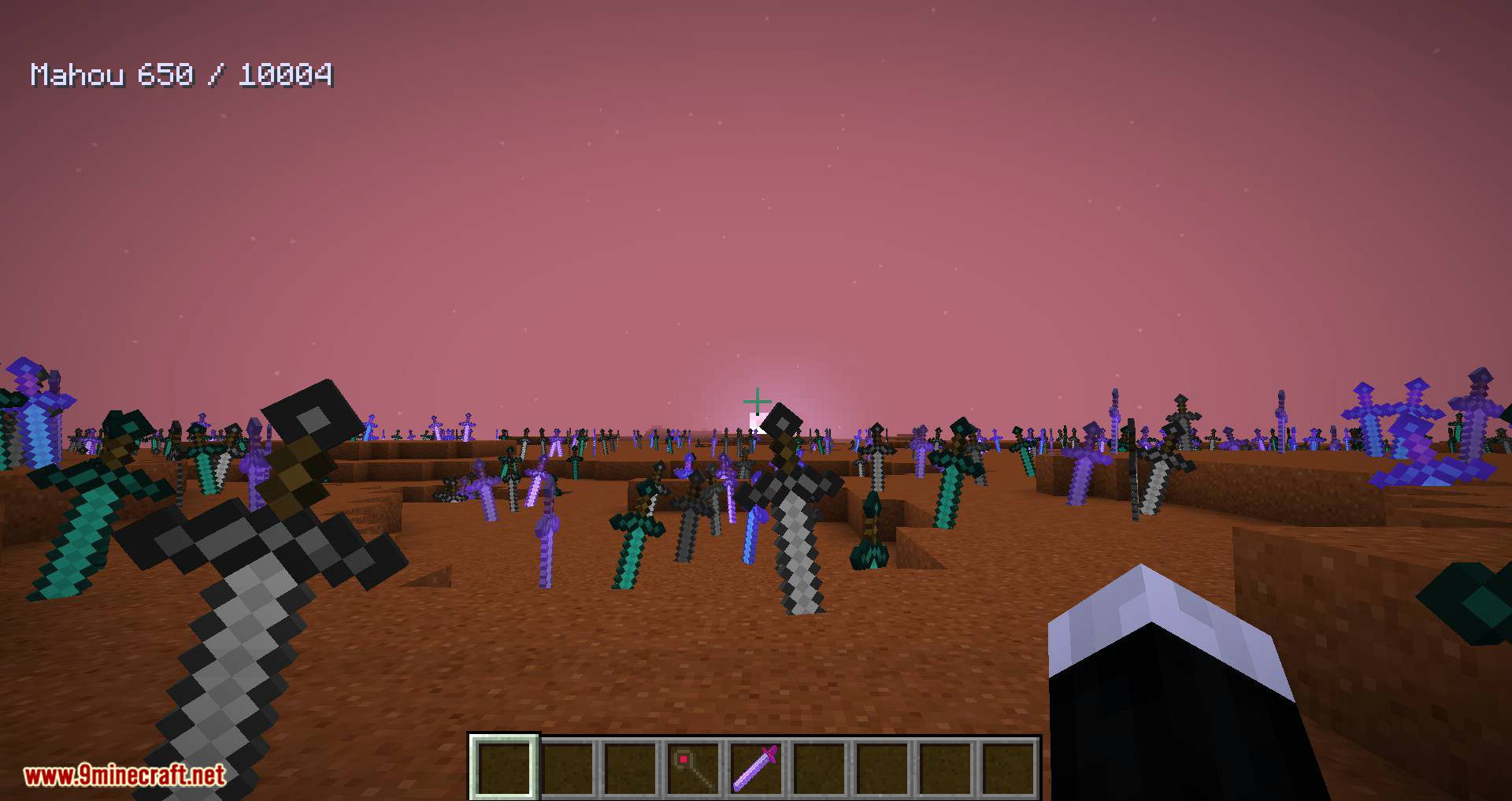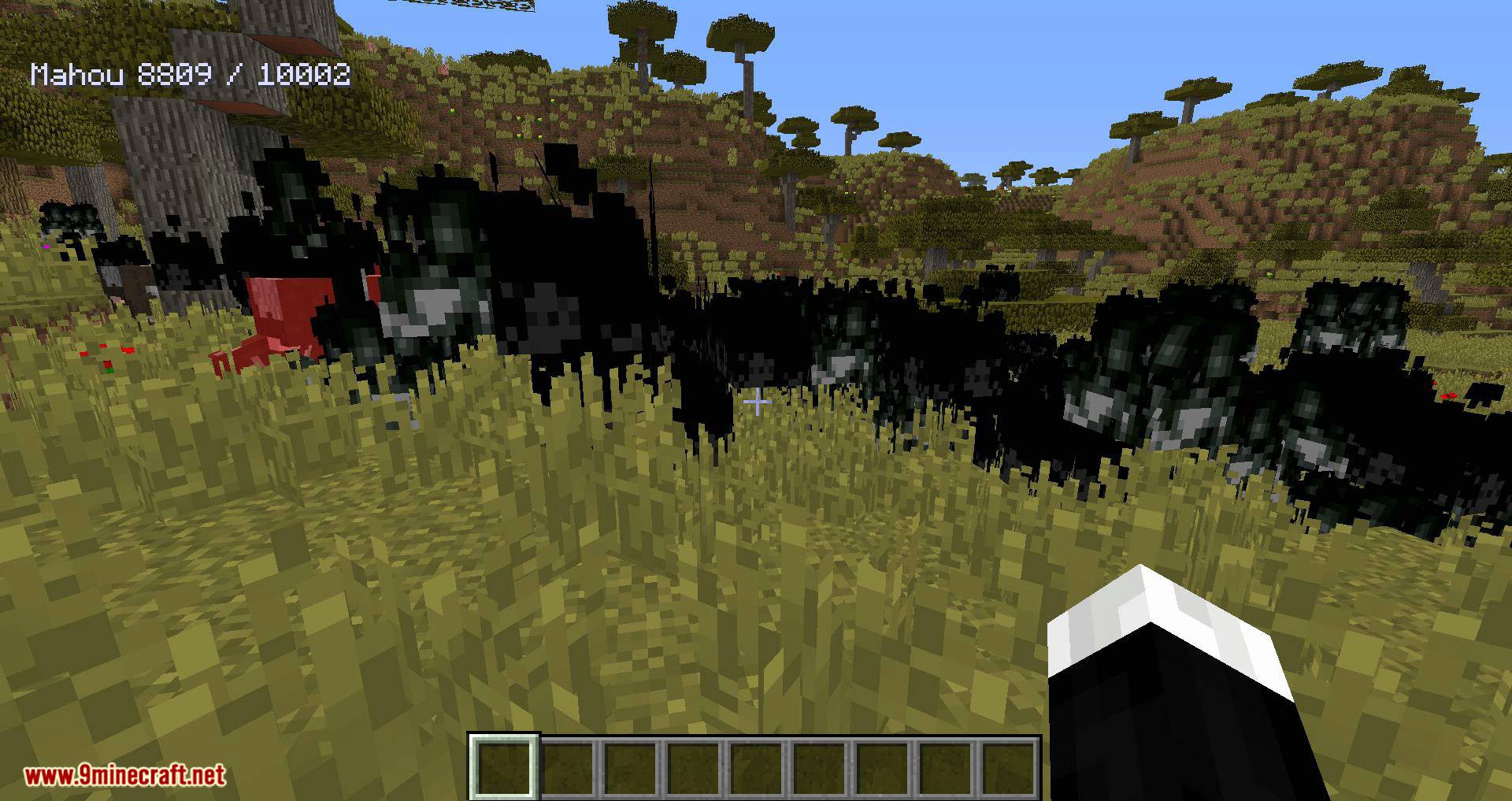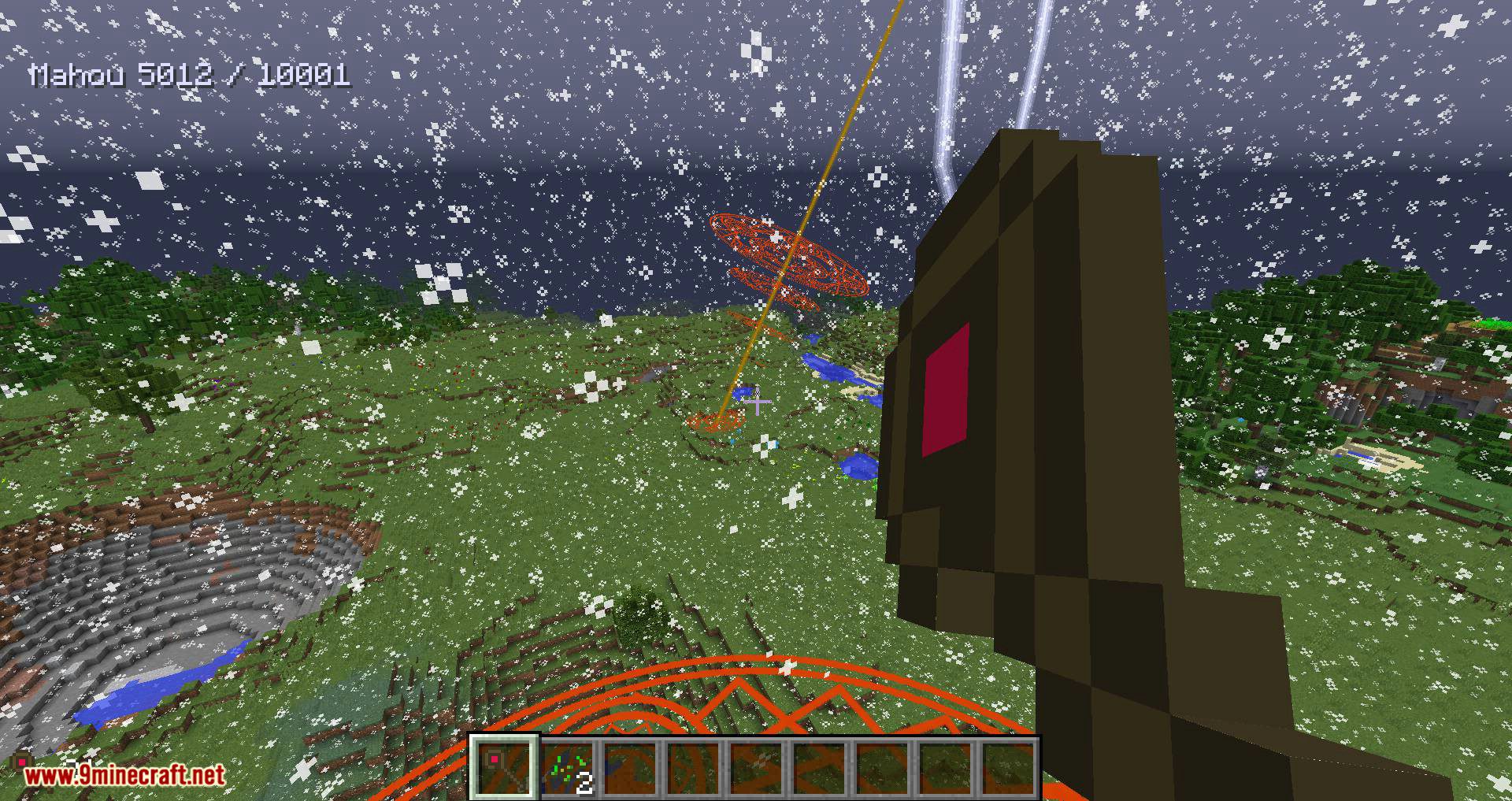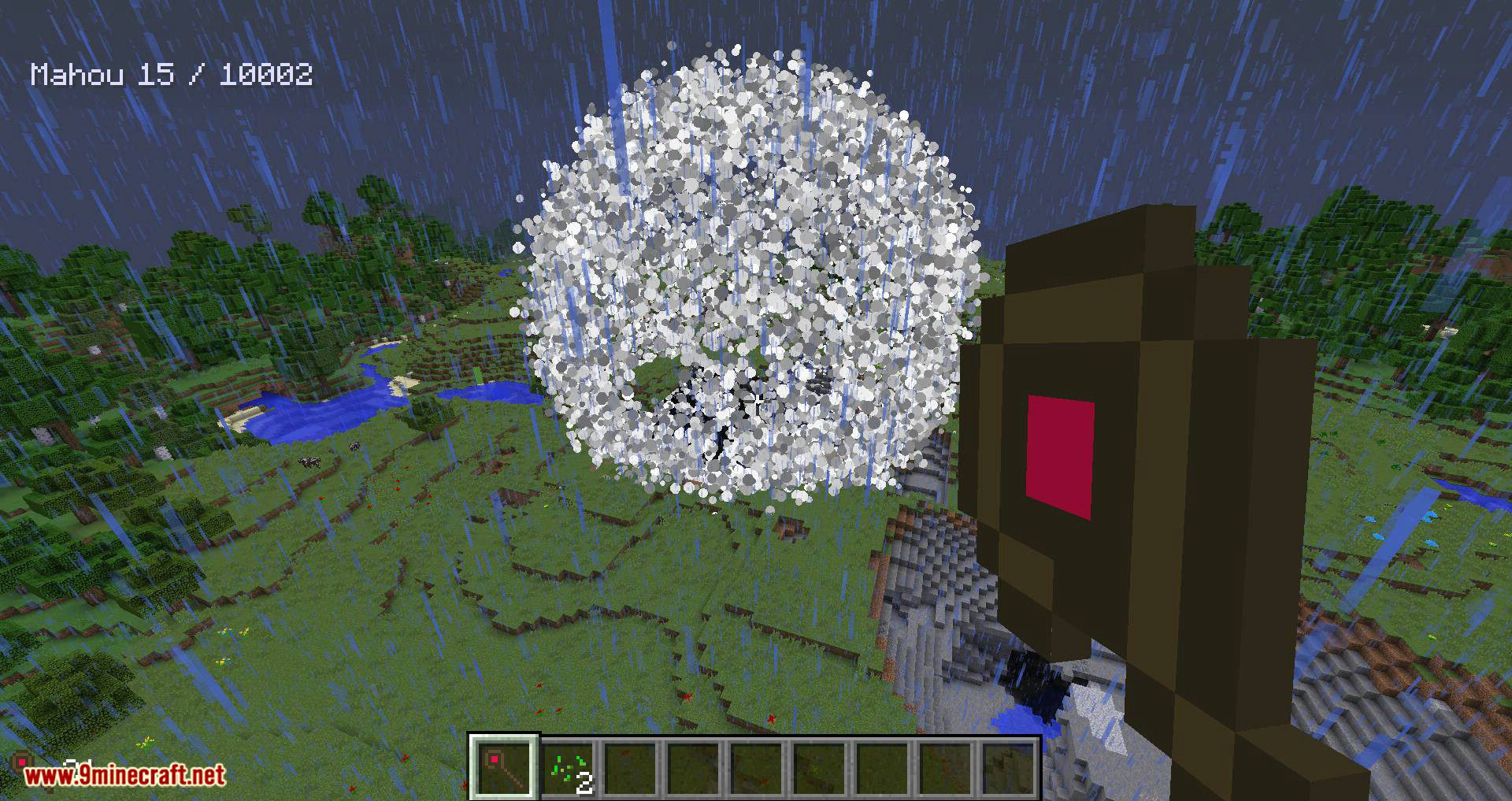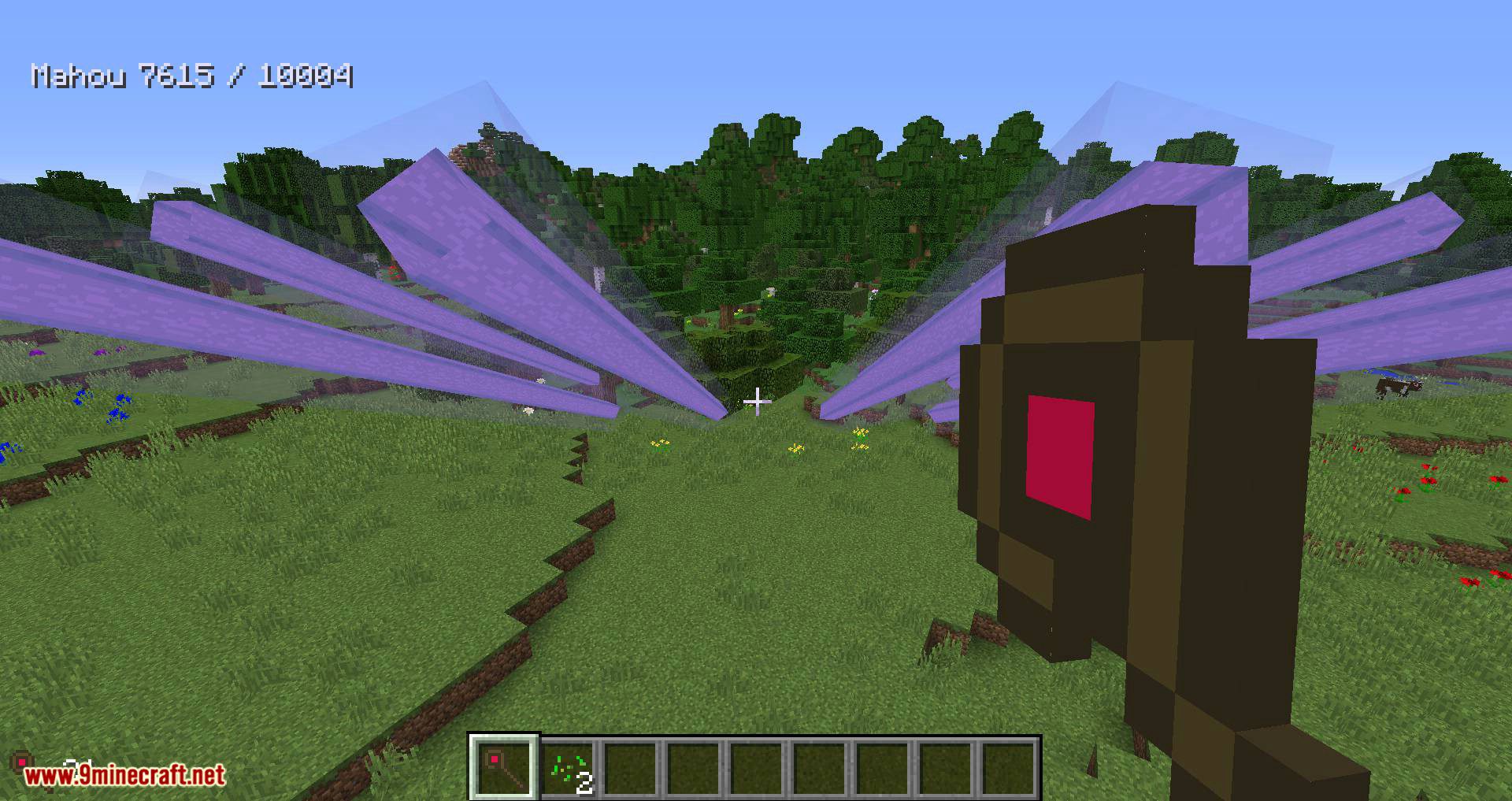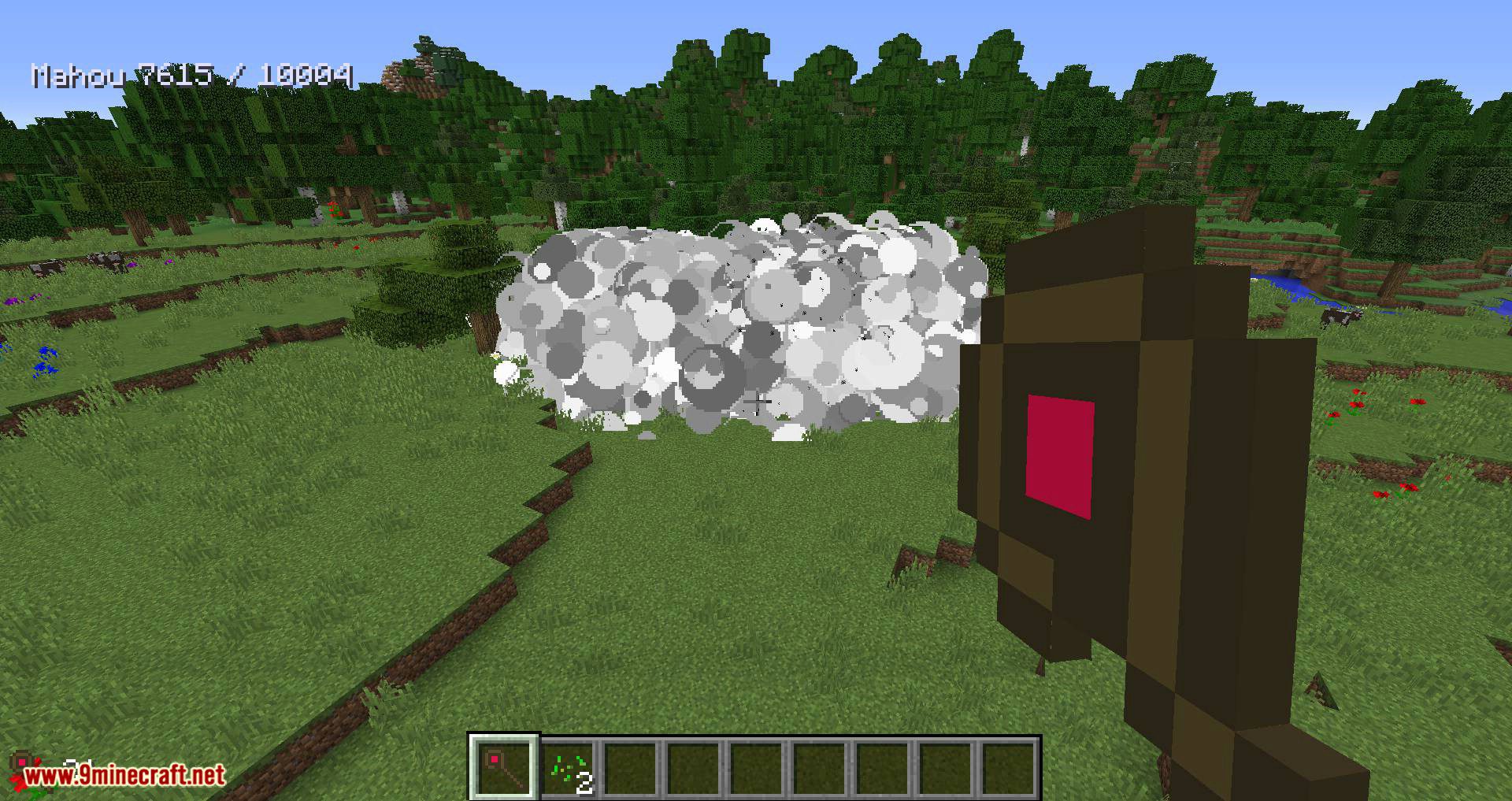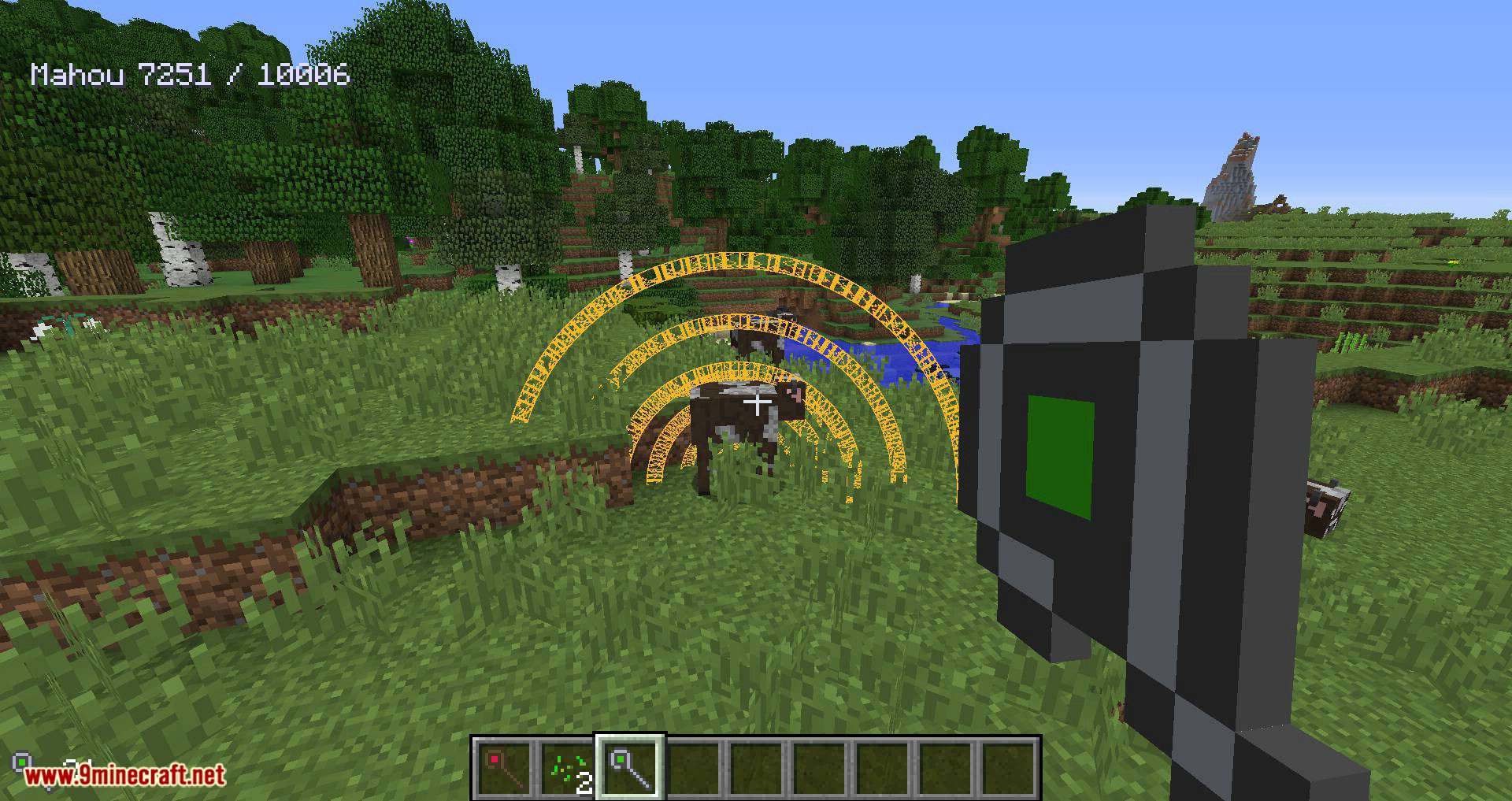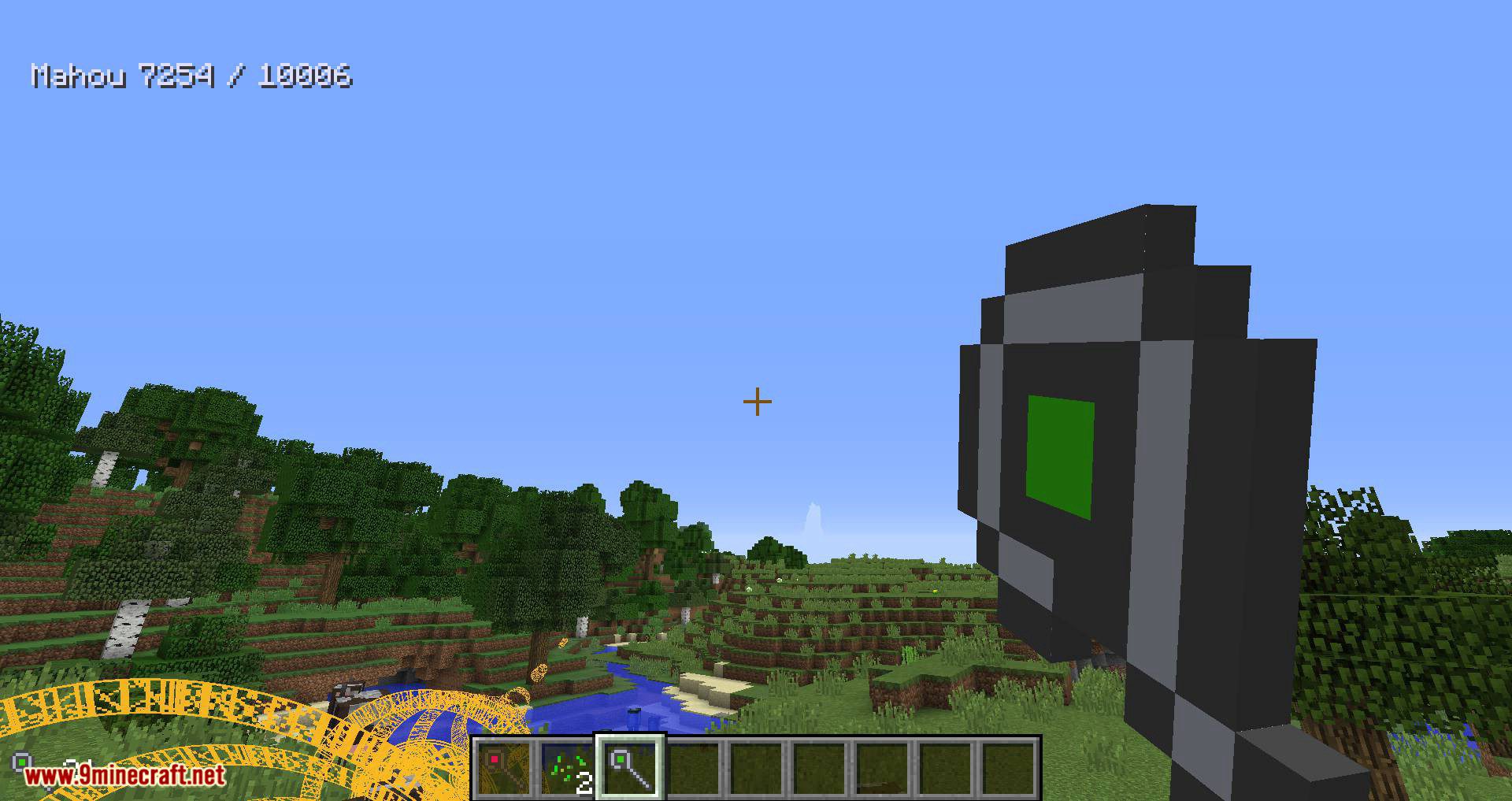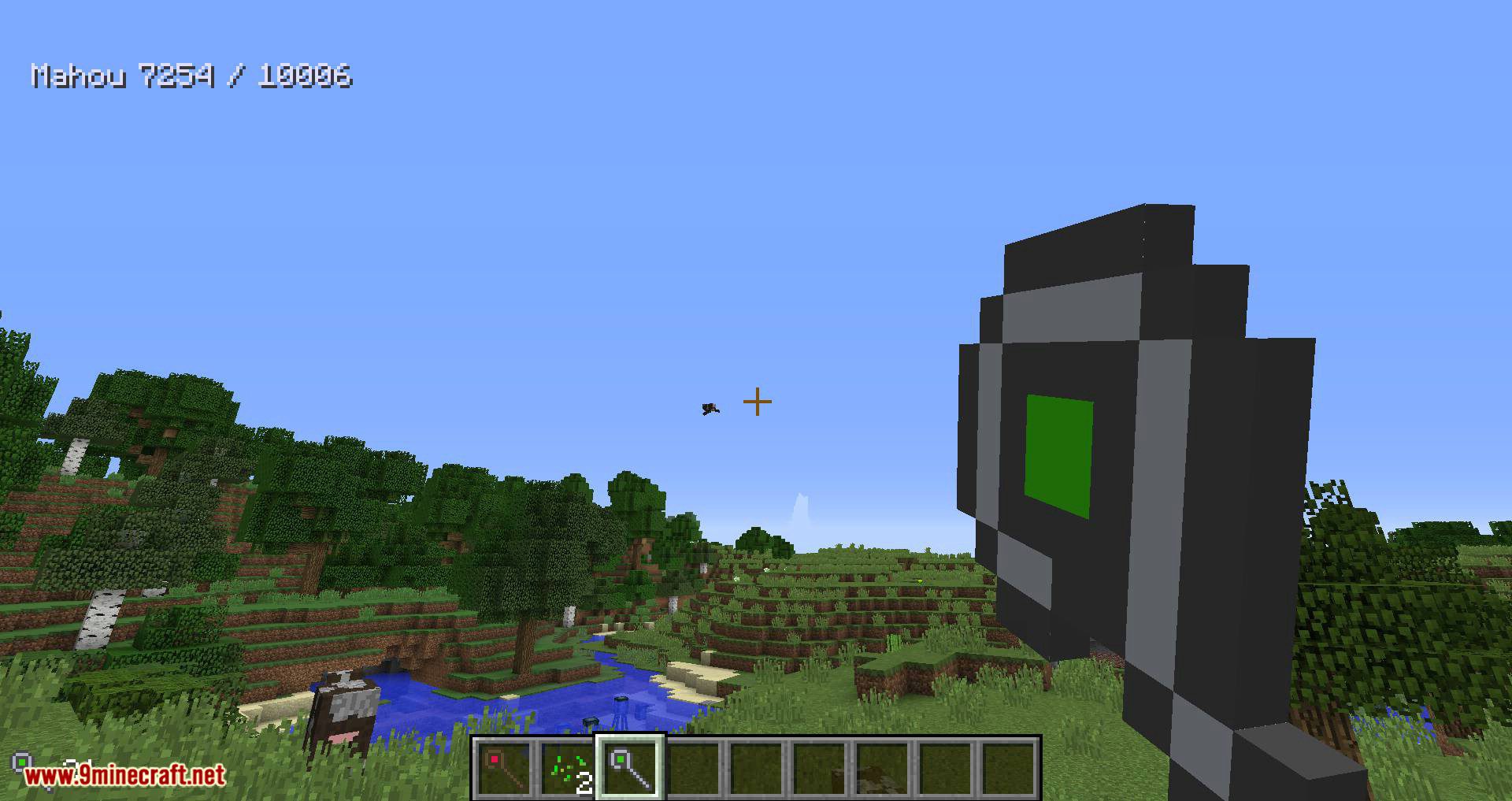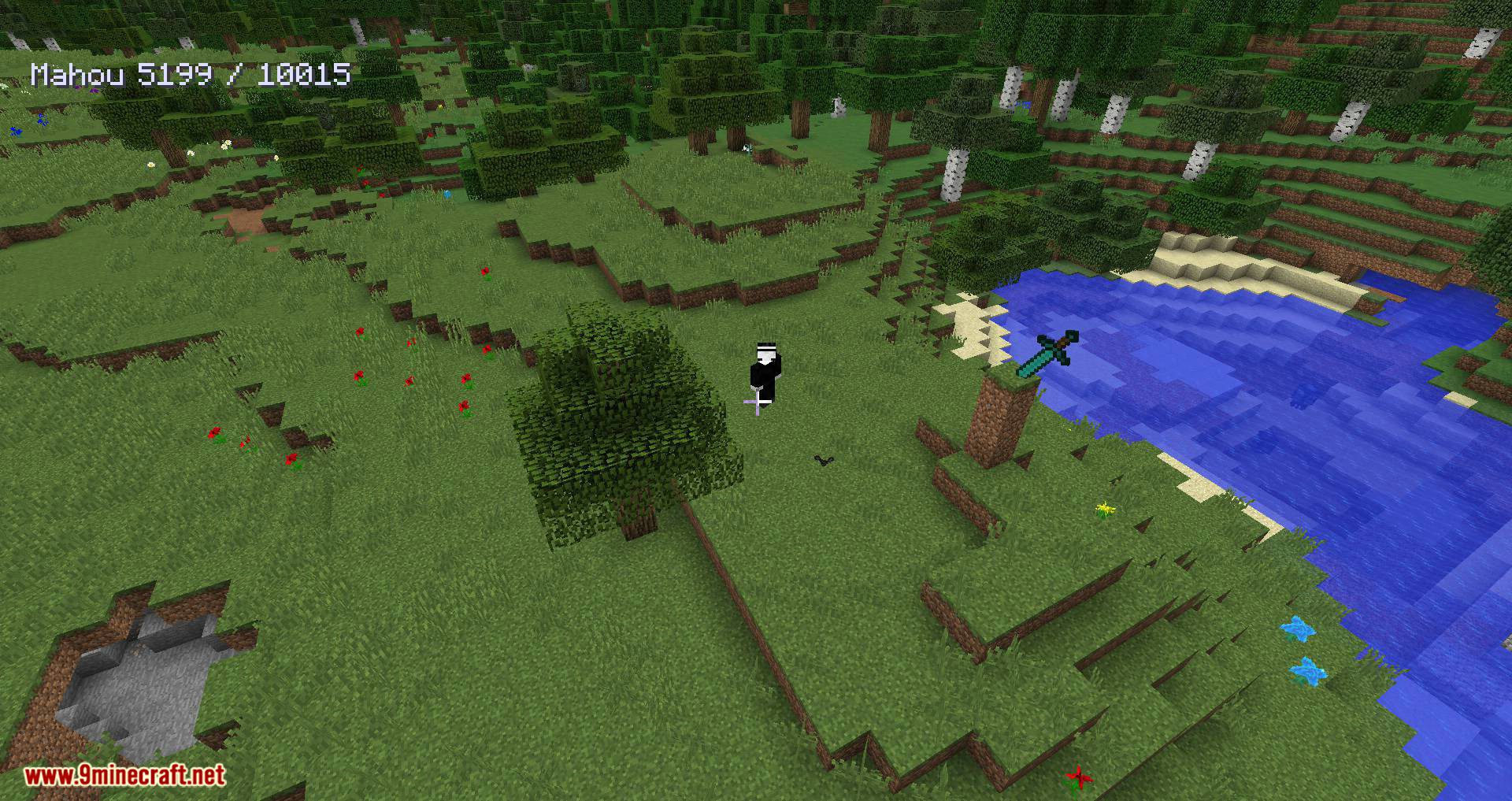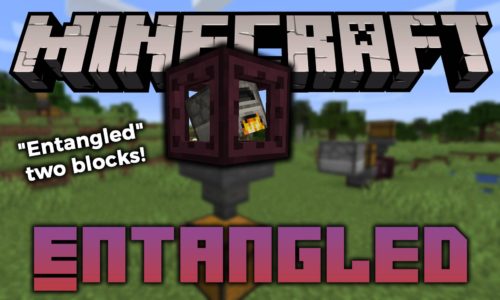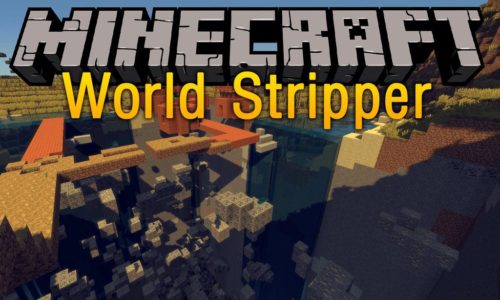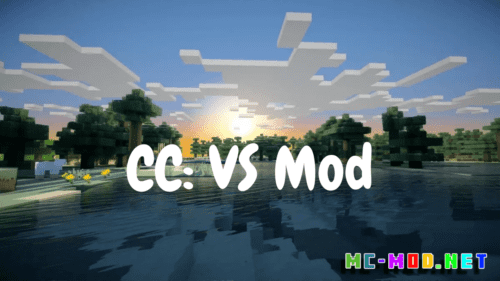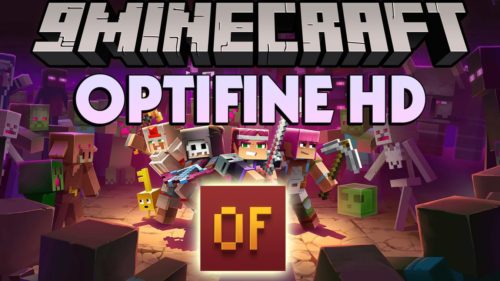Drawing a Circle:
- Injure yourself, and then use the hotkey (defaults to ‘M’) to draw a circle in blood on the floor. There’s a short timeframe that you have to do this after injuring yourself, so there’s a Dagger you can make to stab yourself, if you want. As a bonus, the dagger is very sharp so it increases the short timeframe by a bit.
- If the spell you’re making requires a Cloth, put the cloth down first, and then draw the circle on top. Add catalysts; when you’re done, right click the circle to pick up a scroll.
- (Note – scrolls have a similar problem to Attuned Gems. Typically spells can only be used by you if it has your blood on it – but going to creative mode may remove this restriction.)
Adding Catalysts:
There are seven catalysts each representing one of the known categories of magic. Take a Hammer or a Mortar and Pestle and smash them up into a Powdered Catalyst (note: these are not dusts, which are commonly found in industrial mods as products of ore duplication – a mortar and pestle will give you 2 powders, and that is the optimal production), and add those powders to the blood circle you drew.
The catalysts, and their corresponding categories are:
- * (I) Iron – Boundaries
- * (e) Ender – Displacement
- * (D) Diamond – Projection
- * (E) Emerald – Exchange
- * (G) Gold – Mystic
- * (Q) Quartz – Intelligence
- * (O) Ender Eye – Mystic Eyes
Boundaries deal with protective AOE effects centered on a magic circle.
Displacement Spells deal with teleportation magic.
Projection Spells deal with weapons.
Exchange Spells usually involve a trade of some sort, often to refund or generate mana.
Mystic Spells are unique, often offensive, spells which provide miscellaneous effects.
Mystic Eyes are sight-based spells.
Intelligence Spells typically deal with decision making, often focused around entities.
Here is a list of valid spell combinations (see above for the catalyst shorthand) and whether you need a cloth. An order doesn’t matter for the catalysts.
You can experiment to see how much mana each one costs. Spoilers below – read-only if you don’t want to experiment.
Boundaries:
- IIQ – Alarm Boundary – (cloth optional) – lets you know when something enters your boundary
- III – Enclosure Boundary – (cloth optional) – for people to lazy to build bases
- IID – Tangible Boundary – (cloth optional) – invisible barrier that lets you pass through but nothing else
- IIe – Displacement Boundary – (cloth optional) – teleports things from one side of the boundary to another. use at your own risk – blocks will move too.
- IIG – Gravity Boundary – (cloth optional) – increases the gravity within the boundary, for everyone except you
- IIE – Boundary of Drain Life – (cloth optional) – turns the health of nearby things into health, fullness, and mana for you. expensive.
Note: If a cloth is included, you can make a boundary scroll which allows you to place the boundary at a location quickly. Boundary scrolls do not cost mana to use, but the boundary they place does.
Displacement:
- eeG – Ascension – (cloth optional) – teleports you to the surface. without a cloth, teleports anyone who steps on it to the surface. each teleport costs mana.
- eeI – Protective Displacement – (cloth required) – ever wonder what it’s like to be an enderman?
- eeD – Projectile Displacement – (cloth required) – teleport to the last arrow you shot, assuming it still exists.
- eee – Ordered Displacement – (no cloth) – teleports you to a nearby ordered displacement circle, in the order that they were placed. if there’s no circle placed after, it will loop around to the oldest one. Has a short delay so you can get off the ride if you want.
- eeE – Equivalent Displacement – (no cloth) – can teleport things a long distance between two circles, assuming both chunks are loaded and there’s something standing on each circle. Can be a mob, a dropped item, etc. The things/mobs/people on each circle will switch places. Use shift right click to bind two circles together.
- eeQ – Mental Displacement – (cloth required) – astral projection with a range of 20 blocks. to get out of it, simply exceed the range and you’ll be back in your own body.
- eeO – Scrying – (no cloth) – drop a nametag on top of this one to temporarily view the target player/mob with this name and some of his surroundings. has some limits – can’t see tile entities, can’t see other entities other than the one you’re scrying, doesn’t work across dimensions, target must be loaded on the server side etc. etc. But, it should work in the same dimension.
Projection:
- DDI – Strengthening – (cloth required) – strengthen items in your inventory. Durability heals and doesn’t decrease for a few uses. Can mine one level up from the material’s usual capabilities. So sticks can mine stone, wood pickaxes can mine iron, stone pickaxes can mine diamond, etc. Mining speed goes up a bit. More damage when you hit stuff. Can be used on sticks, swords, etc (projectiles will have increased smacking damage, but not increased projectile damage). Targets the first thing on your hotbar, or your off-hand slot.
- DDQ – Projection – (cloth required) – first use memorizes a tool or item you’re looking at. Can be in something’s hand, can be on the ground, in an item frame. second use gives you a copy of the tool, with 5 durability.
- DDe – Crimson Black Keys of Proximity Projection – (cloth required) – summons a weapon. teleports you to the thing you’re attacking. can attack from far away.
- DDG – Bow of Weapon Projectiles – (cloth required) – summons a bow which lets you shoot tools, but not arrows.
- DDD – Reality Marble – (cloth required) – teleports you and your target (if you don’t have a target, just you) to your reality marble. You should be teleported to the same spot every time. Other people will have a different spot in the dimension. There will be a lot of swords there. You can change it to prepare for victims. To leave, kill your target (if you had one), then take damage (or just die, but your items will be left there).
- DDE – Power Consolidation – (no cloth) – Place this (probably far from your base) to spawn a large lake. Throw an enchanted sword in the lake, and then go diving to get a new, holier, sword with damage equivalent to the sword you threw in, including its enchantments (Smite is the best, duh). (Note: This process can be repeated by re-enchanting the sword you received. If you’re a killjoy modpack maker who thinks this process is unacceptable, look for the “nerf factor” in the config and set it to 1.0).
- DDO – Treasury Projection – (cloth required) – Summon weapons from your treasury (read: your inventory & ender chest) to pelt enemies with! Must have weapons in inventory or ender chest for this to do anything.
Mystic:
- GGE – Damage Replication – (cloth required) – replicates damage and potion effects that happen to you to the thing you use it on
- GGI – Rho Aias – (cloth required) – a big shield. bounces entities back a bit
- GGD – Mystic Staff of Explosive Mana Condensation – (cloth required) – makes a big explosion. long charge up. big mana cost. Shift right-click for a smaller AOE attack mode.
- GGe – Mystic Staff of Spatial Disorientation – (cloth required) – shoots entities really far. Aim at an entity to just throw one. Aim at an empty block to throw everything near the block
- GGG – Borrowed Authority – (cloth required) – borrow the authority of the gods and whack stuff around for a bit. Try not to use it too close to your base!
- GGQ – Cup of Heaven – (cloth optional) – the evil plan! form some sort of polygon out of these circles without the cloth. fill the polygon with nodes without the cloth. make a scroll with the cloth to activate the cup!
- Every living thing in the external polygon will be affected.
- Caster must be within 30 blocks of a node to activate the cup. (bit of a lag sometimes so only use the scroll once)
- Effects depend on how many nodes you put inside the polygon.
- Multiples of 2 add stacks of poison, multiples of 3 add weakness, 5 adds blindness, 7 adds slowness, 11 adds wither, 13 adds levitation. So 12 internal nodes would be Poison II and Weakness I for example.
- Effects will also be applied based on how many nodes are on the external polygon. (so a square – 4 nodes = 2 * 2 – exterior will give you poison 2 by default)
- Nodes must be within 20 blocks of each other to be counted as part of the network.
- For aesthetics, putting the circle further down makes a bigger circle in the sky! visual only. Put it above height 80 for a tiny circle in the sky.
Mystic Eyes:
- OOG – Mystic Eyes of Binding – (cloth required) – stare near people/mobs to halt their movements. They have to be facing you. If you’re stuck in this, try looking away from the person casting.
OOQ – Mystic Eyes of Minor Clairvoyance – (cloth required) – lets you predict the movements of some entities. Doesn’t work on angry skeletons when they strafe. Can be finicky. I think I fixed all the networking bugs in this, but maybe not.
OOD – Mystic Eyes of the Black Flame – (cloth required) – creates difficult to contain black flames at the target location. causes wither damage to entities which come in contact with them. spreads rapidly. quench with rain or water if it gets out of control. (Rain will work underground too.)
OOI – Mystic Eyes of Death Collection – (cloth required) – watch things die (doesn’t matter how) and collect their souls while the spell is active. Prevent your death for every full soul collected. Players give 1 soul by default, mobs give 0.25 souls.
- OOE – Mystic Eyes of Reversion – (cloth required) – stare near people/mobs to revert them to the way they should be. Potion effects are cleansed, buffs from Mahou Tsukai are cleansed, Endermen stop dodging arrows, Shulker boxes can’t block arrows, Withers can’t block arrows, Nether mobs can burn, Water mobs can drown, Husks catch fire in the sun.
- OOO – Mystic Eyes of Fay Sight – (cloth required) – allows you to see the Fae and Leylines.
Familiar:
- QQQ – Summon Familiar – (cloth required) – Summon a familiar. It talks, wanders, and tells you what it sees/senses every so often. You can name it. It might die when you’re logged off, though, out of loneliness.
- QQe – Recall Familiar – (cloth required) – Call your familiar back to you.
- QQE – Familiar Exchange – (cloth required) – Switch places with your familiar.
- QQG – Shared Vision – (cloth required) – See what an entity or player sees. To get out of this, try right clicking – you can scroll to make sure the hotbar is on something safe to right click, as whatever you right click will be used.
- QQI – Familiar’s Garden – (cloth required) – Use after you summon a familiar to create an area where everyone’s friendly. This area moves with the familiar.
Exchange:
- EEI – Damage Exchange – (cloth required) – A masochist’s dream! Turn damage you take into mana.
- EEQ – Chronal Exchange – (no cloth) – Gives you some mana per second half the day, and takes away the mana per second the other half the day. If you create it at 7AM, it will give you mana between 1AM and 1PM, and take away mana between 1PM and 1AM. I.e. mana generation is centered on placement time. Plan accordingly.
- EED – Durability Exchange – (no cloth) – Converts durability on tools to mana. You can just put the tools on top of the circle and it’ll damage them and try to fill your mana bar. You can also put a chest underneath with tools in it.
- EEE – Catalyst Exchange – (no cloth) – Randomly converts powdered catalysts you put on it into other catalysts. Lack of materials is no obstacle if you have enough mana!
- EEG – Alchemical Exchange – (no cloth) – Every day at the time you placed it, it converts certain blocks in a 5x5x5 area underneath it into other random blocks, usually of the same tier. As an example, stone may become other types of stone, and sand may become dirt! Works primarily on natural blocks that spawn regularly in the world, not things like “Block of Diamond”.
- EEe – Contract – (no cloth) – Create a circle and stand on it. Any players who are also standing on a contract circle nearby will form a contract with you, allowing them to pass through negative effects of boundaries and Mystic Eyes of Binding (potentially others in the future).
- EEO – Immunity Exchange – (cloth required) – can be used on either yourself or an enemy you’re looking at. The affected entity does not take damage from repeats of the same damage type, but takes double damage from damage types which were different to the last one they took.
Mystic Code:
- The Mystic Code is an item which holds three stacks of scrolls.
- Press Shift + Right Click to open the inventory.
- Press Y (configurable keybind) to switch between the scrolls.
- Press/hold right click to use the currently selected scroll.
- (Note: As is the case with a stack of projection scrolls, memorizing an item for projection with the mystic code will memorize it for the entire stack, not just for one scroll.)
The Fae:
- The Fae are spirit like creatures which spawn near Leylines. Their laughter sounds like bells, they follow other living things (and each other) and they drop Fae Essence upon death. The Fae can only be seen with the Mystic Eyes of Fay Sight.
- The Fae are also breedable by feeding them any powdered catalyst.
- (The spawn rate is configurable.)
Leylines
- Leylines connect certain points throughout the world. They can be seen with the Mystic Eyes of Fay Sight spell. Being near a leyline or a leypoint increases mana regeneration based on a percentage of your maximum mana. The Fae also spawn near Leylines.
Fae Essence:
- Fae Essence is dropped by the Fae. Right clicking will place a fay circle. Fay circles have several functions when used like normal blood circles:
- – scrolls created with a fay circle will be usable by anyone, as long as that someone has mana. Unlike normal scrolls, they are not bound to the player. Simply right click a spell cloth with Fae Essence in hand to utilize this function.
- – stationary boundaries and other circles (ascension, for example) created with a fay circle can be claimed and used by anyone. Claim a fay circle by right clicking it. This allows you to become its “owner” and it will seek mana from you in order to function.
- – most importantly, Fae essence does not rely heavily on the user, allowing for potential automation of scroll creation through mechanical users and the like. (Note: For mechanical users, Fae Essence should use “Use Item on Block” and Catalysts should use “Activate Block with Item”.)
Mana Circuits:
- Mana circuits are blocks which store mana. This mana can be used by the player when nearby, as long as the player owns the block. Whoever right clicks a mana circuit first after it was placed owns the block.
- Right click a mana circuit to put mana into it.
- Shift right click a mana circuit to turn it on or off.
- Scrolls can use nearby (on) mana circuits that belong to the player.
- Boundaries can use nearby (on) mana circuits which belong to the owner of the boundary, even when the player is not logged on.
- Players can charge gems using nearby mana circuits which belong to them.
- There are two variants of the Mana Circuit – by default, there is no benefit to using either, only aesthetics. They can be configured to have different storage capacities.
Mahoujin Projector:
- This block is purely decorative. You can create magic circles for decorating your base. Right-click the block to change the angle, color, rotation speed, whether the circle/ring show, etc. Completely customizable! The base block is invisible, so remember where you put it if you want to modify/get rid of it.
- You can also load images from a URL. To do this:
- 1) Go to the config (on the server) and under other, look for the “Magic Circle URLs” config. It will be a list. Paste any links you want here.
- 2) Place a mahoujin projector and set the Magic Circle Index to the index of the list, starting with [0,1,2,3..]
- 3) For best results, make sure your image has transparency and is fully white, so the colors can color it properly.
